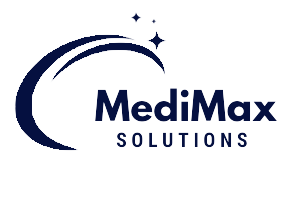You may have great benefits from your employer or other health care coverage, but there may be times when a procedure could cost tens of thousands of dollars. Even with outstanding health care benefits, chances are you’ll need to pay some of that. You may even have to pay all of it if the service isn’t covered.
Just like any other bills, if they go unpaid, they may end up in the hands of a collection agency. When that happens, you can expect your credit score to take a hit. Medical debt is similar to any other debt in its potential to impact your credit.
However, not all debt is created equal. Some credit scoring models put less emphasis on medical debt and lean more heavily on your credit history, credit card usage, and other collection accounts. Obviously, it’s best not to rely on credit bureaus to decide your fate: If you can pay your medical bills on time, you are wise to do so.
Know What You Owe
Something else to think about when hit with a large unpaid medical bill is to make sure it’s accurate. Hospitals, clinics, and other health care facilities deal with many patients on a monthly basis and the occasional clerical error isn’t unheard of.
There are several processes spanning multiple organizations that ultimately result in the bill you receive. An error in any of those processes can result in an incorrect bill. Take time to confirm that the bill is accurate and that your insurance has paid according to your plan benefits.
This is a good idea before your procedure as well. Check with your insurance company to determine how much of the out-of-pocket requirement of your health plan is likely to be incurred by the upcoming procedure. By understanding what your obligation is beforehand you can start making plans to pay it afterward.
When do medical bills start affecting my credit?
You actually have some time to pay off your medical bills before they start affecting your FICO score (that three-digit number). Although there is no industry standard for when a health care institution considers a bill past due, there’s usually a 90-day grace period. In some cases, the allowable time to pay your bills is 180 days.
Of course, the health provider doesn’t have to send the bill to a collection agency, but they do want to get paid. Try to set up a payment plan if possible or even ask for more time. If your medical bill does end up getting sent to collections, you still have a little bit of time.
The three main credit bureaus usually provide an additional 180-day window to pay the bill once they’re alerted. So if everything goes in your favor, you could have six months to pay off the bill before your credit starts to be affected.
How long will medical bills stay on my record?
Medical debt will remain on your credit reports for seven years or until you pay it off. After the seven-year period, those bills will be removed from your credit history. And while those bills may not affect your credit score after that period, the collection agency can still take you to court to get the bill paid.
After you’ve paid the bill, make sure to check your credit reports. In some cases, those medical bills will stay on your credit history for the aforementioned seven years. The key is to be able to pay off medical bills, or any outstanding bills before they hit the collection agency.
About Medimaxsol Medical Billing
We provide health care providers with experienced billing support for more than 130 clients. We offer education, training, or billing services for health institutions that need help with these administrative tasks. Doctors went to school to study medicine, not track down unpaid bills or fix coding mistakes.
MEDIMAX SOLUTIONS also helps streamline the business part of their practice. From the moment patients walk through the door to when they receive their statement, we design best practices to reduce redundancy, errors, and unpaid bills. If you’re a health care provider looking for help in the front office, reach out to Medimax Solutions today.




